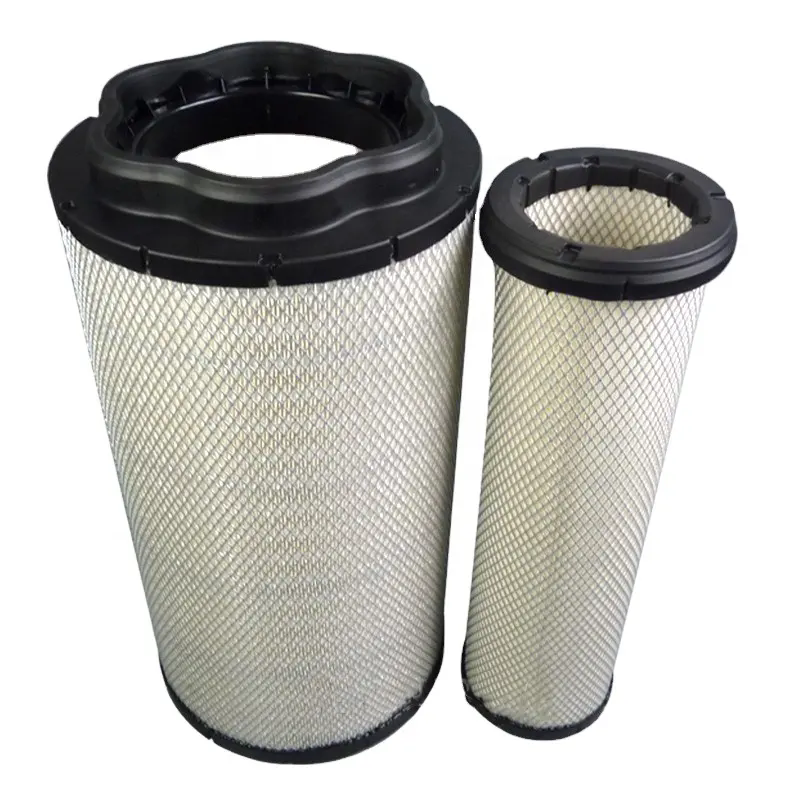Truck Filters: Essential Components for Engine Longevity and Performance
2025-05-14
Truck filters play a crucial role in ensuring the efficiency, durability, and performance of heavy-duty vehicles. These filters are designed to protect a truck's engine and other vital systems from contaminants such as dust, debris, fuel impurities, and dirty oil. By maintaining clean air, fuel, and lubricant circulation, filters help trucks operate smoothly, reduce maintenance costs, and meet environmental regulations.
Types of Truck Filters
1. Air Filters
Function: Prevent dust, dirt, and other airborne particles from entering the engine’s combustion chamber.
Importance: Clean air is essential for efficient combustion. A clogged air filter can reduce engine power, increase fuel consumption, and cause wear on engine components.
2. Oil Filters
Function: Remove impurities and particles from engine oil, ensuring clean lubrication.
Importance: Dirty oil can cause engine wear, overheating, and even failure. Regular oil filter changes extend engine life.
3. Fuel Filters
Function: Filter out dirt, rust, and other contaminants from diesel or gasoline fuel.
Importance: Protects fuel injectors and pumps from damage, maintains fuel efficiency, and ensures smooth engine operation.
4. Cabin Air Filters
Function: Clean the air entering the truck cabin by removing dust, pollen, and pollutants.
Importance: Enhances driver comfort and health, especially for long-haul truckers.
5. Hydraulic Filters
Function: Remove particles from hydraulic fluid in power steering, brakes, or transmission systems.
Importance: Maintains smooth operation and prevents damage to hydraulic components.
6. DEF (Diesel Exhaust Fluid) Filters
Function: Filter DEF fluid used in modern diesel engines for emission control.
Importance: Ensures proper functioning of the SCR (Selective Catalytic Reduction) system, reducing harmful emissions.

Benefits of Quality Truck Filters
Extended Engine Life: Clean filters reduce internal wear and protect critical engine parts.
Improved Fuel Economy: A clean air or fuel filter supports better combustion and efficient fuel use.
Lower Maintenance Costs: Preventing contamination reduces the frequency of repairs and part replacements.
Environmental Compliance: Filters help reduce emissions and support adherence to regulatory standards.
Enhanced Performance: Optimal airflow and fluid circulation contribute to better engine response and power.
Maintenance Tips
Follow Manufacturer Guidelines: Replace filters at intervals recommended in the truck’s service manual.
Inspect Regularly: Especially in dusty or harsh environments, more frequent checks are necessary.
Use OEM or High-Quality Replacements: Substandard filters can cause more harm than good.
Watch for Symptoms: Reduced fuel efficiency, strange noises, or engine misfires may indicate a clogged filter.
Conclusion
Truck filters may seem like small components, but they are vital to the overall health and performance of a vehicle. Whether it’s an air, oil, fuel, or hydraulic filter, each plays a specific role in keeping systems clean, efficient, and functioning properly. Regular maintenance and using high-quality filters not only protect the truck’s engine but also ensure long-term reliability and lower operating costs. For fleet managers and truck owners alike, investing in reliable truck filters is a smart strategy for productivity and sustainability.


